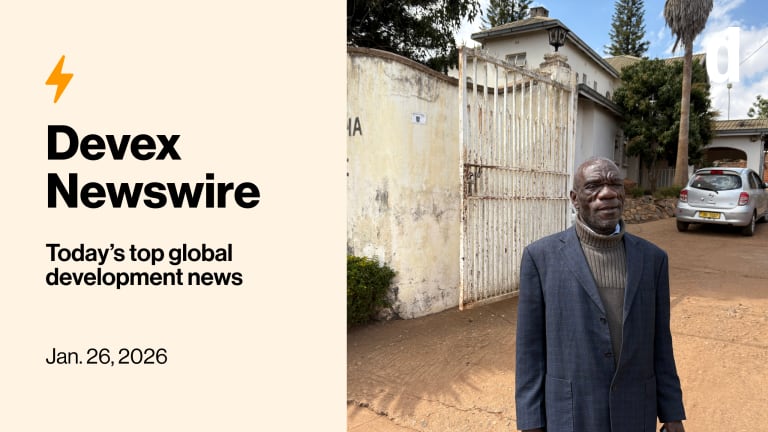
Open trade in essential medical goods and services is often seen as vital for global health security, both to ensure a steady supply and to reduce costs, but widespread protectionist measures are now a source of growing concern for the World Bank and World Trade Organization.
The must-read weekly newsletter for exclusive global health news and insider insights.
These measures encourage a destructive race to the bottom, worsening what is already “a challenging time for globalization,” warned Mari Pangestu, the managing director of development policy and partnerships at the bank, during an event Friday to launch a World Bank-WTO joint report on “trade cooperation” to strengthen pandemic defenses.
Her comment reflects worries at international institutions about global economic fragmentation amid warnings that, in the wake of COVID-19, another pandemic is possible.
Main trends: “More than two-thirds of countries resorted to policy interventions to ensure domestic accessibility of medical goods” during the COVID-19 pandemic, according to the report, questioning whether such measures would truly be temporary, as national authorities have said.
A key repercussion was a sharp rise in costs, with increases of up to 60% in the average trade costs of these goods.
Despite this, trade in medical goods soared by 13% during the first year of the pandemic. Trade in medical services, meanwhile, fell by 9% that year, largely due to travel restrictions.
There was also a rise in subsidies for medical research, which had a “significant positive spillover,” said Nadia Rocha, one of the report’s authors. For example, governments provided subsidies for the development of COVID-19 vaccines. However, restrictive trade policies did hinder equitable vaccine distribution, in some cases.
What’s next: The world needs to diversify manufacturing capacity of medical goods in lower-income countries, Rocha said. The current “concentration in production … can be excessive and economically inefficient,” the report said. Also, divergence between countries’ medical regulatory systems could be streamlined to improve efficiency.
WTO should pass new measures to improve the trade in goods, while also enabling simpler sharing of technical information on medical products, said Director-General Ngozi Okonjo-Iweala during the launch event Friday, ahead of the organization’s 12th ministerial meeting.









